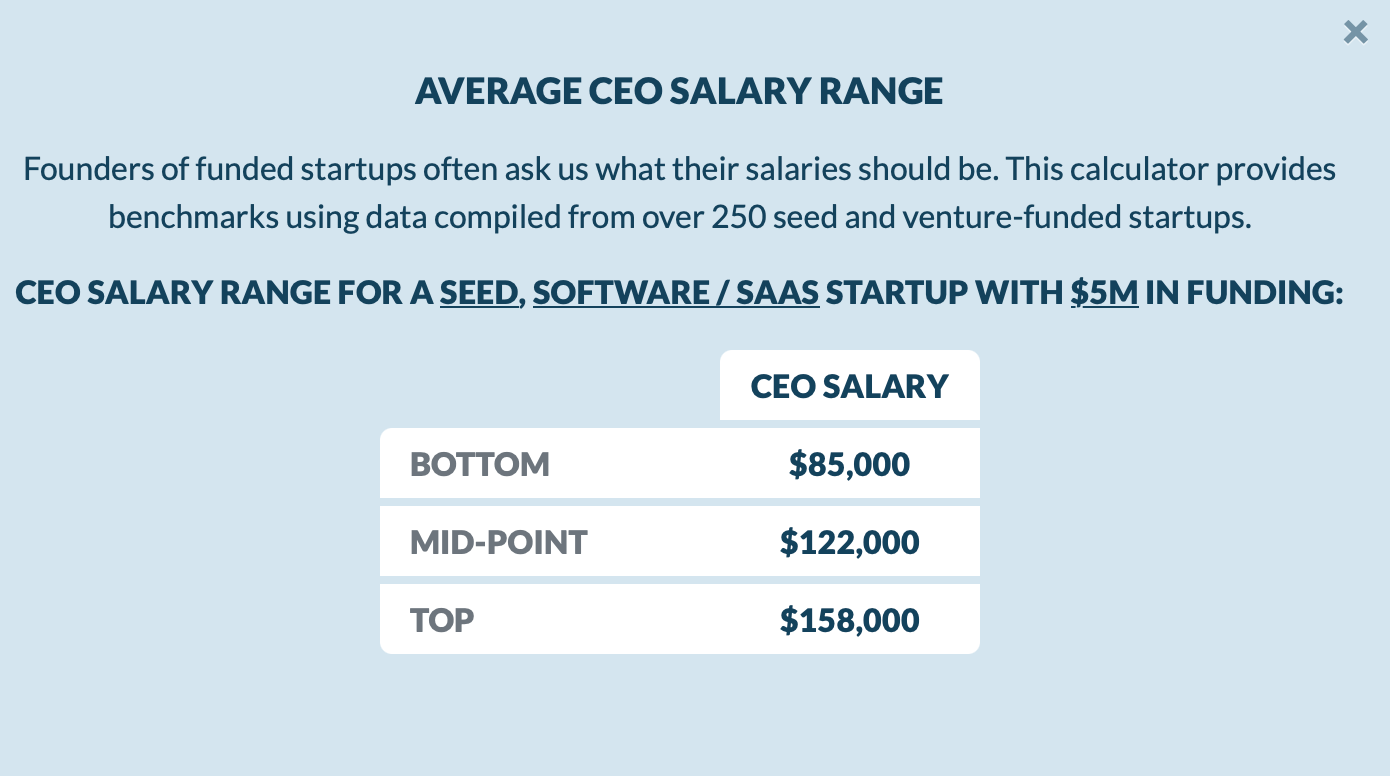Is Being a Founder, Even if your Company Fails, a Viable Path to Early Retirement?
Big Tech is riskier than ever, and founder's salaries are growing all the time.
In my post on how to earn six figures as a software engineer, I mentioned that 99% of startups fail and that most people are better off working towards being promoted at a bigger company. I also mentioned in one of my first posts that I’d love to do my own thing one day. This week, dear readers, I wanted to explore this a little more to understand how impactful to my FIRE plan would founding a startup be.
In this post I am going to make the following assumptions:
I have an idea that isn’t terrible.
Investors assume I am competent.
I manage to raise a seed round.
They are big assumptions, but please humour me for this post. I am not trying to trivialise the amount of work that goes into raising money, it is merely an interesting thought experiment.
Show me the Money
According to Kreuz Consulting. The top-end salary for a CEO/founder of a seed stage company is $158k USD:
Let’s assume £150k GBP for ease. According to levels.fyi, a senior engineer at Apple, Facebook or Twitter can expect to receive a compensation package of ~ £250k GBP. This is actually a little lower than what I receive, but it’s in the same ballpark.
This means as a founder from a FAANG company, you can expect a 40% reduction in salary to found your own company. This is without even considering other benefits and pension contributions, which would likely be much higher at big tech. You also can expect lots of stress, long days and nights, great highs, terrible lows and to do much less software engineering. In return you get to build a company, set the direction and get involved in a little bit of everything; especially in the early days. Depending on your constitution, this may sound attractive to you.
Job Security
A few years ago, big tech was seen as safe places to “rest and vest” but I’m not sure that is true anymore. Both big tech and startups alike are aiming to be default alive. There is plenty of companies letting go of what seems to be strong talent. If you want to read more about this, I recommend this post and the excellent Pragmatic Engineer newsletter (which chances are you are already subscribed to).
If you were to raise a seed round right now, your job would be secure for at least 18 months (assuming a standard rate of burn). Even when considering the compensation reduction, this is surprisingly appealing to me, at least right now.
Risk vs Reward… is it Worth it?
There’s no doubt that big tech does its best to give its talented employees golden handcuffs. A pessimistic reading of this is that its somewhat designed to prevent exactly the situation outlined here. However, with the mass layoffs of the past few months, the appeal of big tech is starting to loosen to me and many of my friends. My prediction is that in the next two years, we will see a boom of founders from big tech taking “risks” that they previously may not have taken, simply because they do not seem that risky anymore compared to the alternative.
If I was a gambler, I would bet that now is a great time to start planning your exit from big tech and begin working on your great idea.
Time to start working on my pitch deck…
-The Fat Software Engineer.




